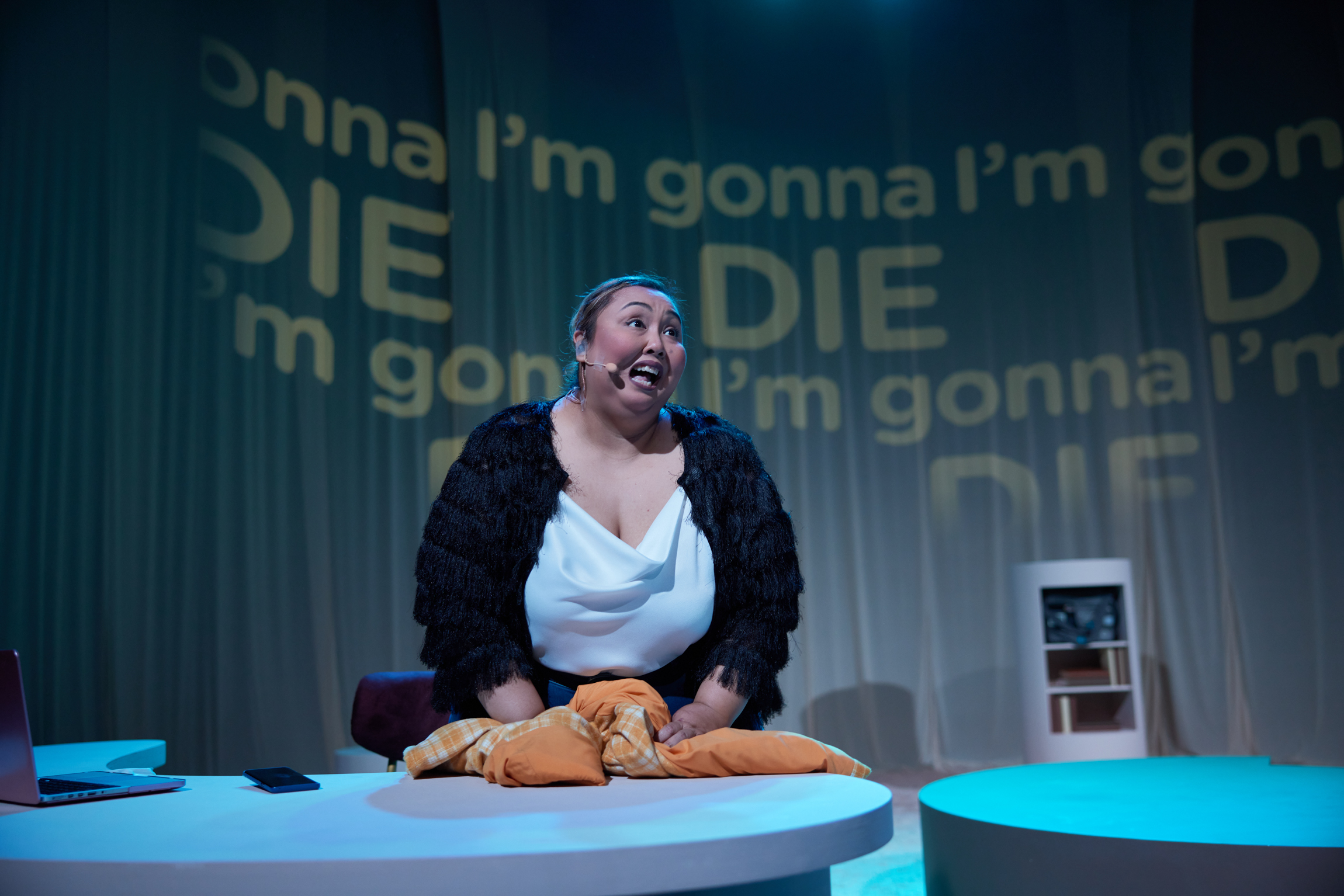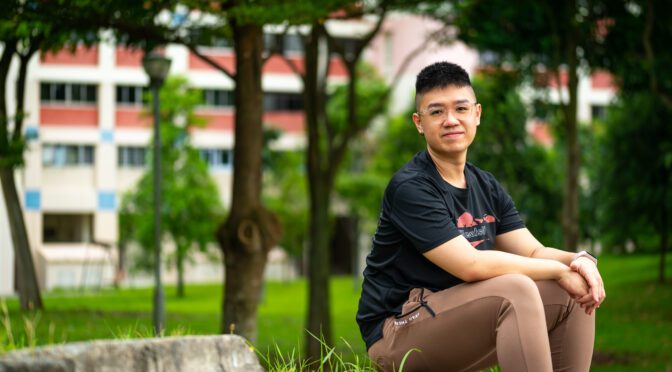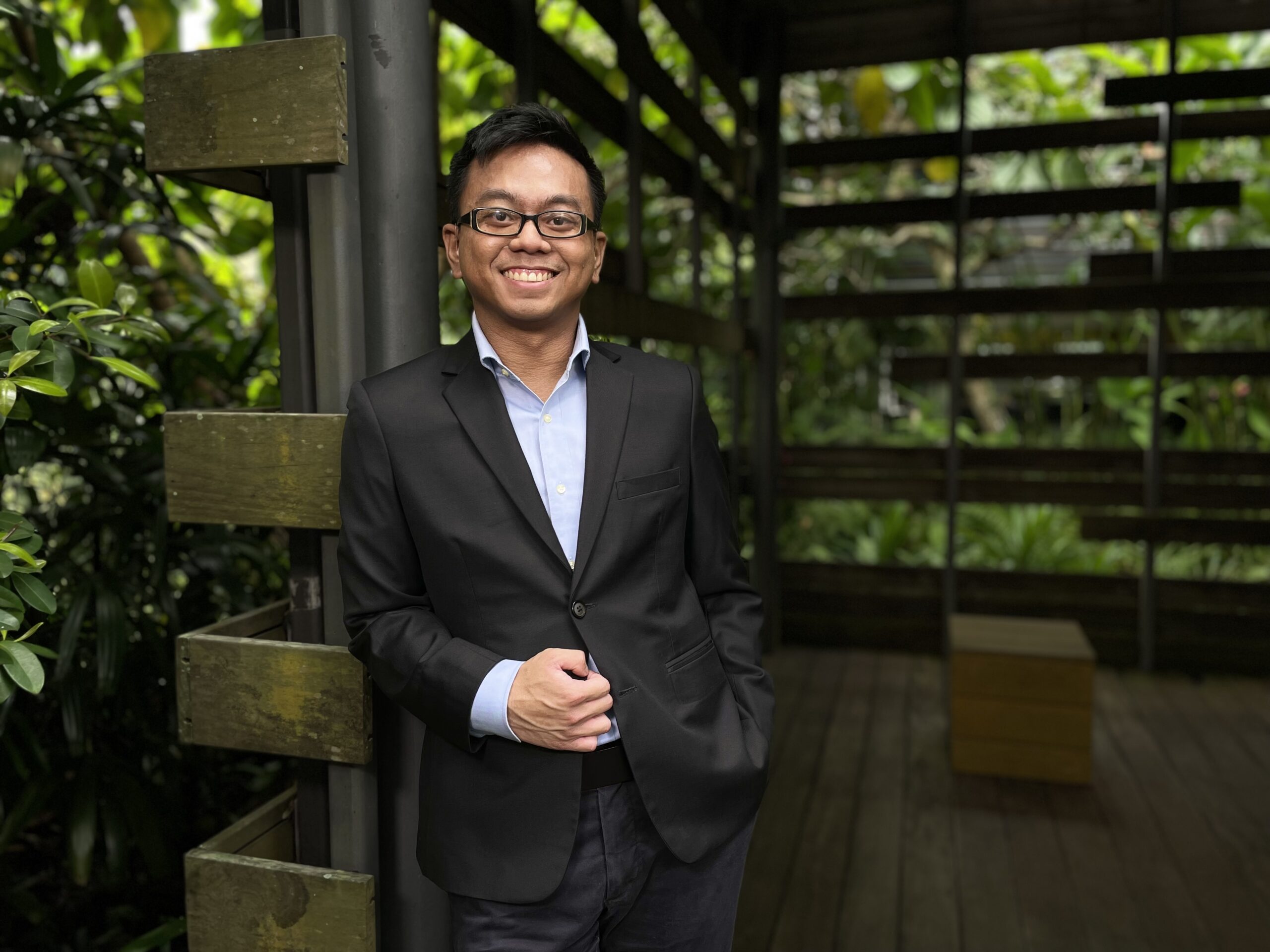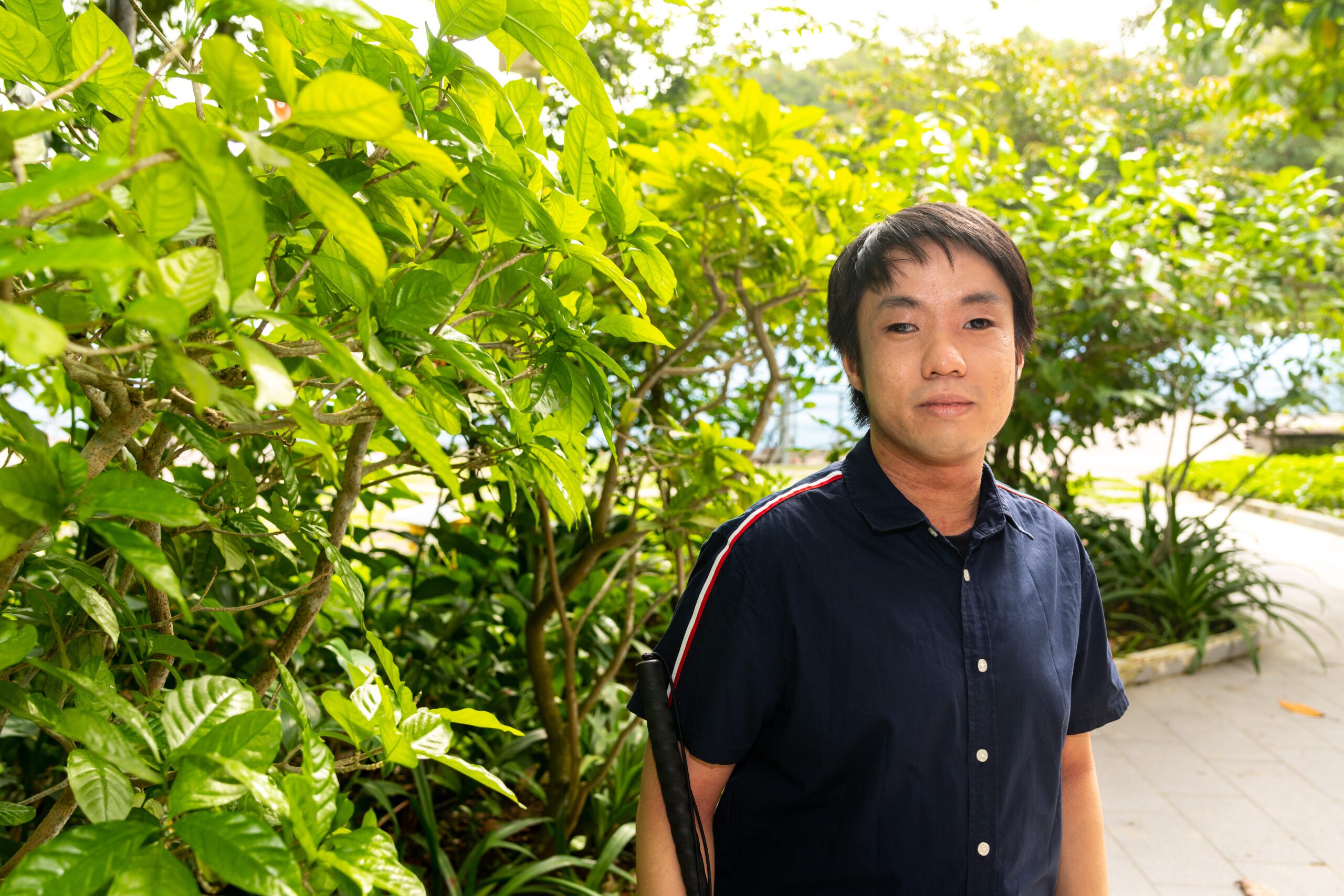Was there any pressure from your family to lose weight?
My father has a very lean physique while my mother is a curvy but not a big woman. We think I inherited my grandmother’s genes: she’s plus-sized as well. Growing up, my mother was very protective of me, and she never once made me go on a diet. It was always more of diluting my soda or cutting down my access to snacks.
The pressure came when I was much older. When I was seventeen, I tried the Atkins diet. I initially thought it wasn’t that bad as I could eat anything but carbs. And then I realised I couldn’t live without carbs. Then came the wanting to have a life partner, to want to know what love feels like. I didn’t have a boyfriend when I was in secondary school, so I’d spent a lot of time thinking: ‘What is wrong with me?’ ‘What am I doing wrong?’ I’ve wondered if everything that the world has taught us about inner beauty is untrue. Do we really get picked because of our looks? They say ‘love yourself first’, but I feel that it’s so difficult for me to love myself because I don’t know how anyone can love me.
You’re a multihyphenate: actress, writer, singer. To be able to perform on stage to a live audience tells me you’re confident and obviously talented. Why do you say you struggle with self-love?
My stage work has more to do with my career and interests. I can be the funniest person in the world (my friends repeatedly tell me I’m not) but it doesn’t mean I don’t have debilitating thoughts about myself. The audience may clap for me, but I don’t feel loved. I feel appreciated that the audience finds the script and jokes enjoyable. But the applause doesn’t help me to become confident, not in areas such as my love life or relationships. Self-love is a personal journey, and it is a lifelong struggle for me. For me, I yearn to see myself through the eyes of someone who loves me, so that I can finally see what I’m worth. People have told me that I really shouldn’t be depending on others to determine my self-worth. But it’s easy for them to say that. For them, when someone pays them a compliment such as ‘you’re beautiful’, they don’t immediately think: ‘He’s lying. There’s nothing, absolutely nothing, here that he sees that is beautiful.’
Have you come to accept your body or is that still a struggle?
I’ve come to accept that even if I were to eat less, I would always be plus-sized. I’ve also come to take ownership of the word ‘fat’ and think of it as a positive term. While I’m fat, I’m a healthy girl and I don’t have any illnesses. But especially after the past two years of COVID-19, I’ve reflected on things like longevity. I want to make sure that I can continue doing what I love for a long time. My goal now is to be big and active. Production rehearsals have been a good catalyst towards this goal: we’ve been doing Zumba and other activities to build stamina. One thing though that I have had to learn is that being fat is not my identity. My personality isn’t made up of my weight. Being fat is a part of me, and I have to live with it.
From pain comes beautiful art. Tell us about your show Big Brown Girl.
Melissa Sim, my co-writer for the show, and I used to talk about our dating experiences. I shared mine, not just as a big girl but also as a girl of a minority race. And then she shared her friends’ experiences, and we both saw that there was a common thread here. The story of Ruby, my character, is one that needs to be told. The story follows her experiences as a plus-sized woman, as she travels the world and finds her self-worth.
The production is by How Drama. We have another production entitled ‘Fat Kids Are Harder to Kidnap’, where we would stage thirty-one plays in an hour. There’s an interactive portion where the audience would shout the number of the play and we would perform it. We wanted to bring this interactivity to Big Brown Girl: it gives the audience a sense of agency as they can vote for the men that Ruby would go on dates with.
Many people have asked: ‘Oh, so does Ruby’s story represent all fat girls’ stories?’ It doesn’t; it’s not a one-size-fits-all story. This has to do with the fact there is so little plus-size representation in Singapore. I’m therefore so grateful to Esplanade for giving us the opportunity to stage our play. It’s quite bold of them to do so. I’m hoping that this will open up more platforms for other plus-sized girls and boys to share their stories, which are multifaceted and beautiful.
Indeed, there is a scarcity of plus-size representation in Singapore’s media scene. And if there is, it’s caricatures. One last question: aren’t you afraid of putting so much of yourself out there?
Oh yes, I do feel that fear. While conceptualising the show, there were many moments when we thought: ‘Is this too much?’ But what I’ve learnt is that I have to present honesty to the audience, so that people will learn and know that these are the very struggles that plus-sized people encounter. This is where I think Melissa is brilliant, as she was able to take the stories I offered up and adapt them to suit Ruby the character. The story became more character centric and less autobiographical. It’s a story that belongs to everyone, even men.
There were many plus-sized women who came to watch the show during our first leg in December 2021. After the show, they would come to me, crying and thanking me. I was so humbled by it. Hearing their compliments has helped me work through my own set of insecurities. Thank goodness I wasn’t the only one who went through incidents like being asked to sit on a bar stool — those things are invented for fat-shaming! Why would you put me at the end of a chopstick? I’m now very excited for the upcoming shows and to hear feedback from more people.
Ross Nasir’s Big Brown Girl returns from 10 to 12 June 2022. Get your tickets now at Esplanade.com. Keep your eyes peeled for an in-depth story with Ross as she shares more on body positivity and self-worth.
Photo credit: Esplanade



